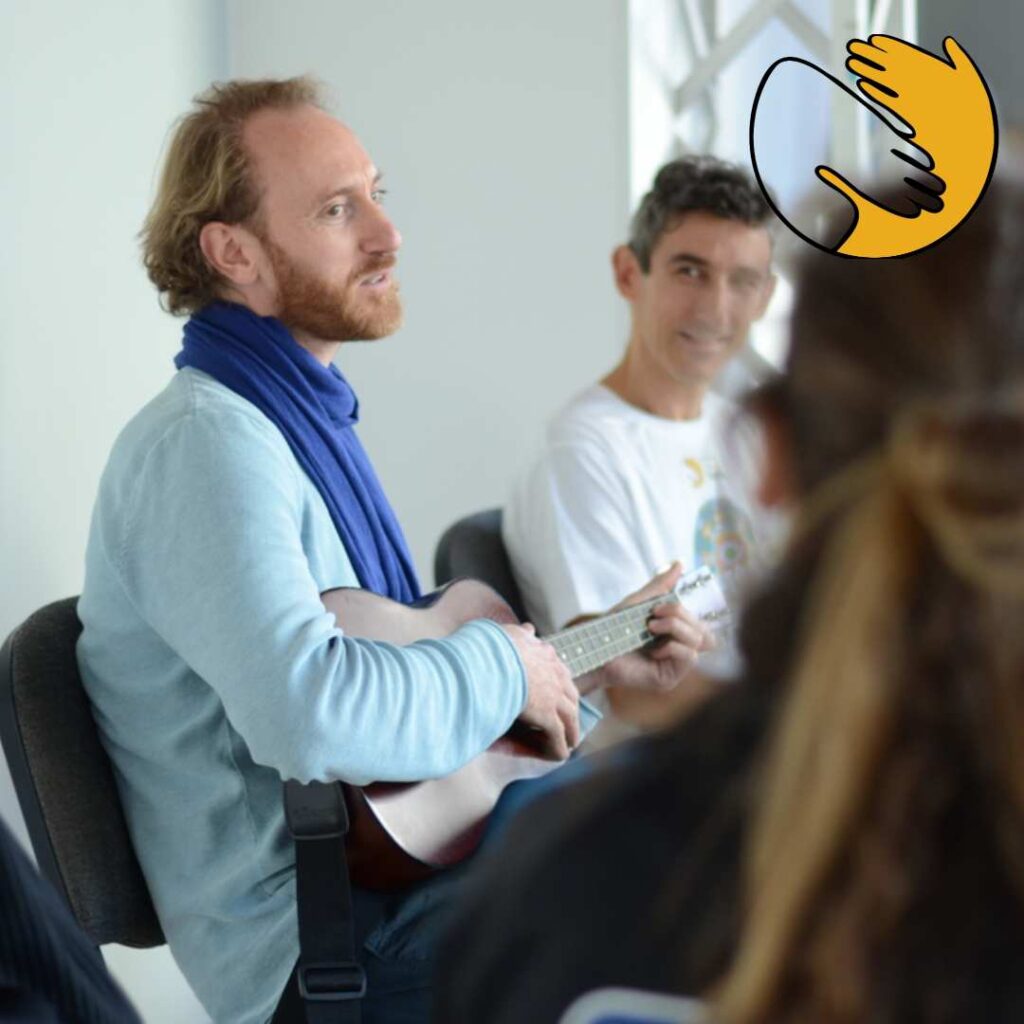Ben Schuetz is a body percussionist and body musician, founder of Body Rhythm festival in Hamburg.
When and how did you start doing body percussion?
I’ve been drumming since a very early age and there is really no start date for the beginning of doing body percussion. But, there was a big change when I heard a CD from the group Barbatuques from Brazil for the very first time in 2010. That’s when I was completely amazed at what sounds you can do with your body and that’s when I really started to get into the body percussion scene. Two years later, at 2012, I was at the International Body Music Festival (IBMF) in Istanbul and I met a lot of people from the body music and body percussion scene: Keith Terry (Keith Terry), Barbatuques (Barbatuques), and that was the initial key for me to have more body percussion in my life and to become a part of that awesome community.
Who or what inspires you? What moves you to create?
As a drummer, it was a bit boring to be always with the same people, musicians, playing gigs, teaching in music school. The body percussion scene is so much more colorful and diverse. There are dancers, singers, all kinds of artists and I am very inspired by that scene. When I am creating I am thinking of rhythms and songs that are fun to play, and fun to share, as well.
Tell us more about your style. How does being a drummer connect with being a body musician?
Having a rhythmical and coordination foundation is helpful. When I started doing workshops I invited all my drummer friends, and it was very quickly clear that being a drummer is not necessarily connected to being a body percussionist. There’s so much more movement and coordination involved, you can walk around the room instead of sitting in the chair and that changes so much. In my experience it is not necessarily easier for people playing drums to do body percussion. Personally, when I create rhythm, I mostly hear a drum percussion track in my head that comes out through my body with the sounds that I hear in my mind. My starting point is sound rather than movement. Later I think about how I can bring movement to that groove.
About my style: I love groove, for me it needs to be groovy and to make you want to move; that is really a starting point when I am doing music.
How does your art change your community?
For sure, doing the Body Rhythm Festival in Hamburg since 2015 has had some impact on many people from so many countries around the world, I hope for the better. I hope people get inspired and get moved and that is what drives me to keep going with all the office work throughout the year you need to do to organize a festival.
Read more about the first New Balkan Rhythm festival in Sremski Karlovci!
Tell us more about how you teach and what you prefer in teaching.
My teaching is very inspired by what I learned in Brazil from Fernano Barba (Fernando Barba), Charles Raszl (Charles Raszl), from the group called Musica Do Circulo (Musica Do Circulo) and events they are doing. All that is very much community oriented. My teaching is not so much technical teaching. It opens room for people to explore themselves in a safe environment where they can also flirt with their limits but still feel safe. I always try to connect the part with games and connectivity with a part where there is a song or a choreography or a rhythm and improvisation. I like to do a lot of improv games and methods in my classes.
What do your workshops focus on? Who can follow them?
It completely depends on the people that are in my workshop. Many times they are open for anyone that comes. If I am teaching a choir, or a group of dancers, or little kids in a school, or I am abroad and teaching a workshop to a group of music teachers in China, my workshops will look quite different. I try mostly to give many options. Rather than dividing the group in less and more advanced and doing the foundational group and a group with more abilities I try to have everyone together and give options: if that’s easy easy for you, you can try that; if that still feels good, you can add this, kind of a modular way to work, I would say.
Interview prepared by Marija Mitic and Ana Vrbaski


